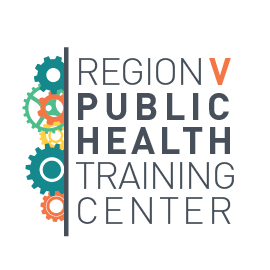
Image Source: Canva
Public health practitioners, especially those in governmental public health, know they need to take steps to assess and address structural racism through policy and practice but knowing what steps to take, or when where to start, can be a challenge. Along with adequate training, access to resources is needed for practitioners to feel equipped to make an impact.
Beginning in the summer of 2021, the Racial Equity Special Interest Group (Racial Equity SPIG), a workgroup of RVPHTC partners and stakeholders from across the region, began to gather and review resources for public health practitioners to conduct racial equity assessments, primarily at the organizational level but also at the individual level. The result is a resource library of racial equity resources, including assessment tools and guides, as well as other informational items of a variety of formats.
Download the Racial Equity Resource Library
Process:
- Resources were first gathered by RVPHTC staff and Racial Equity SPIG members.
- Each resource was reviewed to determine the resource type, source, intended audience, individual vs. organization application, internal vs. external focus (for organization-level resources), awareness vs. application level, and equity focus (e.g., cultural humility, DEI, anti-racism).
- The objectivity, accuracy, currency, and usability of the resource was rated on a scale of 1-5 (1=low, 5=high). Two RVPHTC staff members reviewed resources and first applied ratings independently, then came to a consensus rating. Items with broken links or that require payment for access were removed from the library.
- Objectivity: determined by examining if the purpose of the resource was clear, provided factual information, listed an intended audience, utilized criteria for inclusion of information, and disclosed sponsorship of underwriting
- Accuracy: determined by examining if the facts were documented or well-researched, if the facts provided by this resource compare to related print or other online sources, and if the resources linked to quality web resources
- Currency: determined by if there was evidence of current information in the resource and its organization, and if the resource was created within the past few years
- Usability: determined by assessing the navigability and stability of the resource, whether the content was readable by the intended audience, if the information presented was error-free, and if the resource provided a readily identifiable link back to the institutional or organizational home page
Notes:
- The Racial Equity SPIG and the RVPHTC do not recommend any item from the resource library in particular, as we haven’t used them all ourselves. We acknowledge that individuals and organization may have different needs and uses for the resources included, and there is value is including a variety of items from different organizations. Even items older than 5-10 years can provide helpful historical context in the ever evolving work towards racial equity.
- The current version of the library was reviewed by Racial Equity SPIG members, but the resource library is a growing, living repository, and we hope to continue to add to it in the future. If there are items you would like us to consider adding, please share them with us at [email protected].
- If you’d like to know more about how the RVPHTC has been involved in racial equity and racial justice work, be sure to check out our blog post on Racism as a Public Health Issue, which also links to relevant trainings available.
- To further your learning, enroll in our Health Equity & Racial Justice in Public Health program!
